Davis is a small college town in California’s agricultural heartland. It is the whitest and most affluent town in Yolo County, which is, overall, a much poorer and browner place. Growing up there, I noticed that many of the homes of my white friends had a Mexican woman cleaning up for them. It felt strange to see these women who look like my family members cleaning up after my classmates, who even as children rarely seemed to notice or thank them. I’d go over to a friend’s place after school, and there they’d be: unloading the dishwasher, mopping the floor, folding the laundry, making us snacks. I always dutifully engaged these women in polite conversation the way I’d been taught to do at extended family functions, until a friend, eager to get to the Xbox, corrected me: “You don’t have to say hello every time.” I came to feel embarrassment, even shame, by my ethnic association with my friends’ servants.
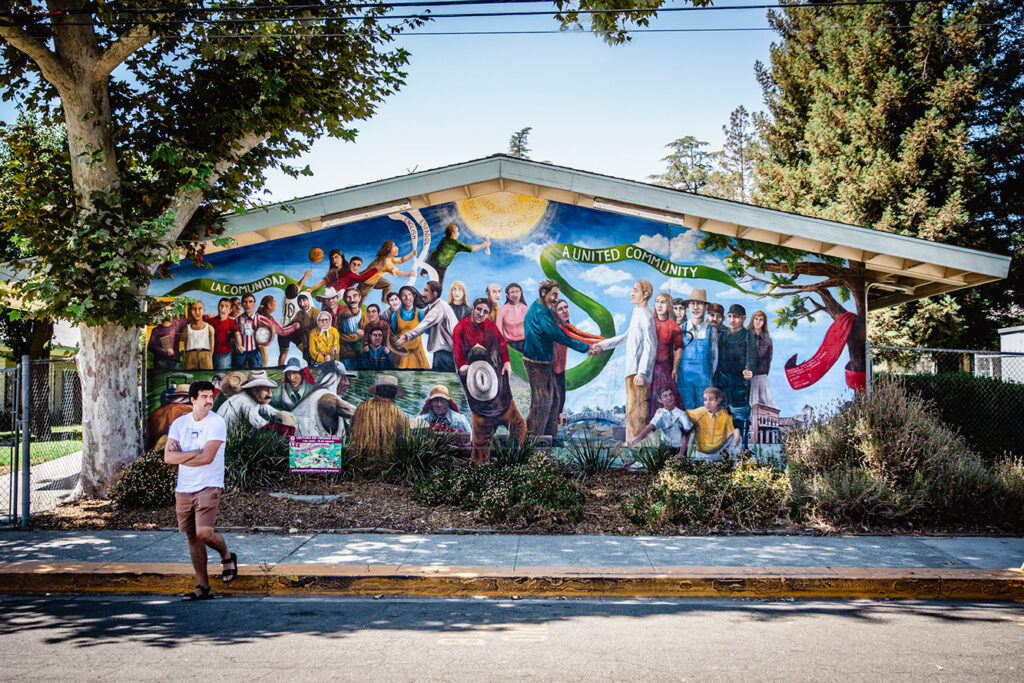
As I got older, I learned to accept that Latino immigrants did all the hard and dirty work that American society needs to keep going. Construction workers, janitors, busboys, housekeepers, gardeners, farmworkers, window cleaners, meatpackers and more: What would America be without them? And so what began as a sort of shame at seeing people I identified with in low-wage jobs shifted to an unearned pride in the hard work of people who looked like me. My grandfather had been a bracero farmworker during World War II, one of hundreds of thousands of Mexican men imported to harvest America’s crops during the war. The allied armies were fed by the sweat of his brow; there could be no VE or VJ Day without him. Though my own hands have no significant calluses, I have used my grandfather’s labor as my claim on America.
Very few working-class Mexican Americans in Yolo County had any expectation that government would serve them largely because it very rarely had.
Yet what I have never learned to accept is the idea that all this hard and dirty work should stay invisible — that people should eat the food picked by Mexicans, and yet still manage to not see the Mexicans doing the picking. Latino immigrant workers carry American society upon their backs. I yearn for that contribution to be acknowledged, and I am angry that it too often is not.
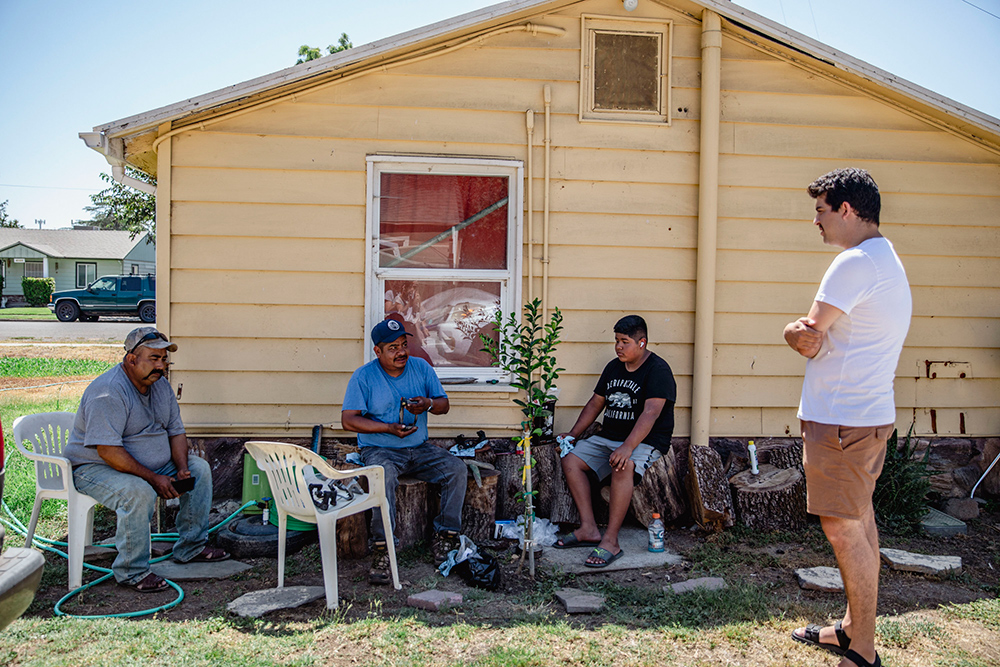
The invisibility of low-wage Latino workers was the state of things when the COVID-19 pandemic struck in 2020. Over the course of the next year, from the initial stay-at-home orders through the vaccination campaign, Latino workers in Yolo County, and America as a whole, would experience new extremes of hardship and sacrifice, but also find new possibilities for recognition and progress. If the fight against COVID-19 was indeed a war, then the farmworkers of Yolo County in particular belong in the same pantheon as the men who stormed Normandy or held the line at Gettysburg. Now, as the nation grasps for some sort of “normal” to return to, the question is: What will happen to all those Latino workers whose labor was deemed essential? Will they return to being invisible, or will we find a new solidarity is here to stay long after the virus recedes?
Most of us share the disorienting memory of being caught by events when a virus that had been only a distant news story suddenly crashed into our personal plans and lives. States of emergencies were declared and stay-at-home orders issued. And yet those same emergency declarations and stay-at-home orders made clear there were exceptions: The shelves at the grocery would still need to be stocked; the crops in the fields would still need to be picked. Yolo County’s stay-at-home order made it clear: Agriculture was essential critical infrastructure. Farmworkers should continue to report to the fields for work. You can’t pick tomatoes over Zoom.
In Yolo County, as in California as a whole, over 90% of this agricultural labor force is of Mexican origin. Agriculture is the backbone of the county economy, which in turn is central to our local identity. We love our farm-to-fork restaurants and bi-weekly farmers’ market. All that fresh local produce depends on mostly Mexican American workers who for a long time have not gotten fair treatment. A pre-pandemic study by the California Institute of Rural Studies found that over half of those working in fields struggle with food insecurity. I love my hometown and county as much as any American boy ever has. But it’s a fact that Yolo County is a place where the people picking the food we eat cannot afford to feed their own children.
Now those same people would be asked to go to work amid a pandemic, with no vaccine yet in sight, risking exposure to themselves and their families every day. The most vulnerable and exploited workers in our community were suddenly “essential” — meaning they had put themselves in greater danger in order to ensure there would be food on the table for those safely at home.
During the pandemic, we all knew what we were fighting against. Now is the time to decide what we are fighting for.
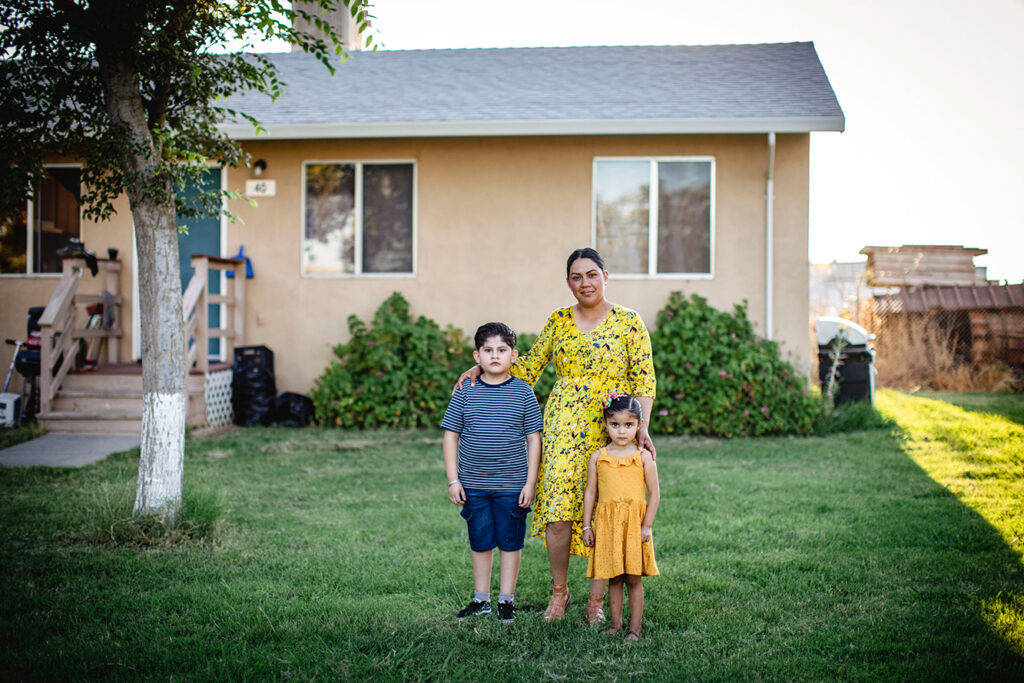
It was predictable then that Latino essential workers would disproportionately suffer from the COVID-19 pandemic. How then should government — the very government designating them essential — respond? The rural Latino community in Yolo County had long been disconnected from local government. The residents of the migrant farmworker camps for the most part don’t know who their county supervisor is, nor would they know where to begin looking for a county press release. To this day, I doubt most farmworkers ever saw the stay-at-home order that exempted them.
For a long time, this disconnect between the Latino community and local government was tacitly accepted, and barriers to greater Latino participation were left unaddressed. But in a pandemic, an outbreak in any community threatens every community. A virus cannot comprehend race or class or national origin. Now, local government officials had no choice but to make an effort to reach everyone. And that meant going to where the people were: apartment buildings, taquerias, Mexican butchers and grocery stores, Catholic churches, anywhere that offered wire transfers to Mexico, migrant farmworker camps. And, of course, the fields, vineyards, orchards and canneries that make up the great factory floor of California agriculture.
I would be part of this effort, beginning with putting up Spanish-language posters explaining the stay-at-home order and farmworkers’ new status as “essential.” I posted them everywhere that a Mexican American in Yolo County might go that I could think of. And so I got to witness this great experiment in whether local government could deliver for rural Latino communities.
As a Mexican American who works in politics and government, I’ve thought a lot about these questions: How do you get equal access to the institutions of government? How do you create a sense of belonging? How to create an equal sense of ownership over this “government of the people, by the people, for the people” among my people?
For our local county government, such a focus on reaching our rural Latino communities came with a little bit of a learning curve. Though Latinos were close to 40% of the Yolo County population, political participation was a recent development for our community. This was just the way things were. And, after all, Latinos for the most part weren’t clamoring for anything more. They weren’t showing up to Board of Supervisor meetings, organizing petitions or writing letters to the editor. Within the structure of local government, I tried to convey that just because the Latino community wasn’t asking for something didn’t mean there wasn’t a need. Instead, their expectations of government were so low that it didn’t even occur to them to ask. Very few working-class Mexican Americans in Yolo County had any expectation that government would serve them, largely because it very rarely had.
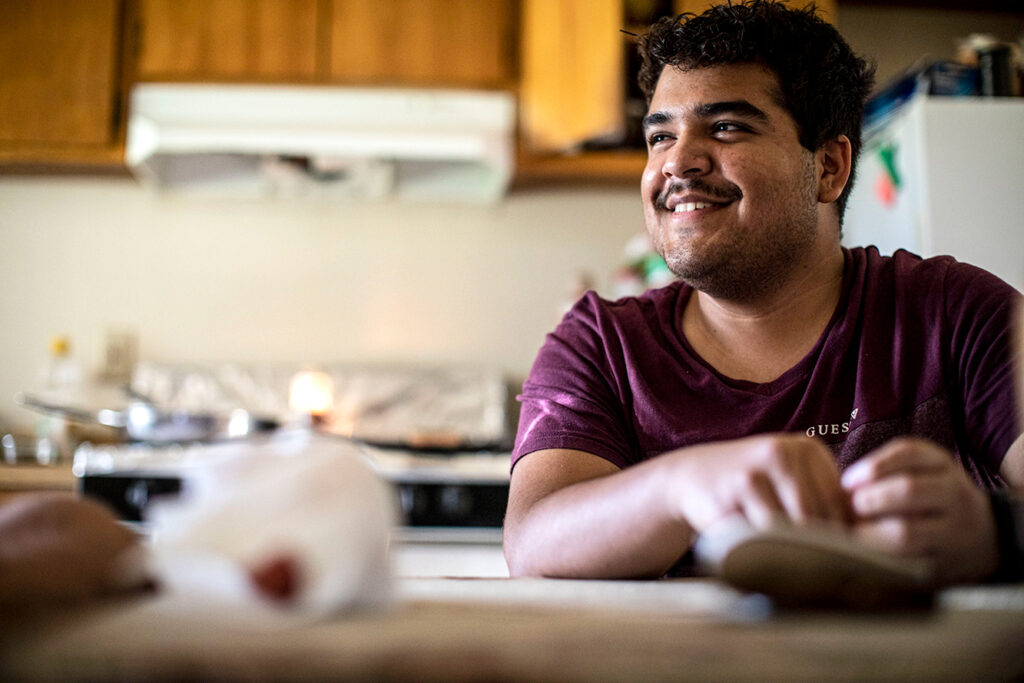
This cultural aversion to making noise, to demanding more of government, would impact how resources were distributed. When the first COVID-19 tests arrived in July 2020, they were in very short supply. The county’s Emergency Medical Services team set up the first free COVID testing in the region — one man drove all the way from Nevada to get one. Among the first places where the county set up was in the small, poor and heavily Latino town of Knights Landing, reflecting a genuine commitment to reach Yolo’s underserved communities. When the clinic opened, there was already a long line of people, many of them farmworkers who had come straight from work in the fields, waiting to be tested. Many clutched their Mexican consulate IDs — the only form of identification many undocumented people could get.
We quickly realized we didn’t have enough tests for everyone, even after restricting them to one test per household. Eventually it fell to me, the designated Spanish-speaker, to go out and count out the last dozen tests, and then tell everyone else to go home because we were simply out of tests. I promised we’d be back, but said we couldn’t help them that day. Everyone in line, working class Mexicans with calluses on their hands and dirt on their shoes, was polite to a fault. Some sighed with disappointment, but most just quietly walked away. An old woman asked me in Spanish to please take her phone number down and let her know when we would be back.
A few days later, we were testing in affluent, educated white and white-collar Davis when the same thing happened: We ran out of tests. People were furious. No one thanked us or walked away quietly. Instead, angry and frustrated citizens did what they should do: They called their elected officials and complained. They posted angrily on social media. They got an article written in the paper. We came back to Davis to do additional testing by the end of the week. I wouldn’t get to call that woman in Knights Landing to tell her we would be back there for two weeks. It was a civics lesson: Squeaky wheels get the grease.
The question is how to break this vicious cycle between lack of public investment in Latino communities and the Latino community’s subsequent low levels of political participation. The task was to create a real expectation within the Latino community that government could and should serve their needs. But the burden of proof was on government to demonstrate that this was even possible. It is government that needs to take the first step.
We got the chance to test that theory with Yolo County’s farmworker vaccination campaign. To this day, my participation in that effort is the part of my life that I am proudest of. By early May 2021, over 80% of farmworkers in Yolo County were fully vaccinated. For once, farmworkers had been made a priority by our local government, becoming eligible right after health care workers and first responders alongside those older than 65. This was a political choice, made by local government out of recognition for the essential role and greater risks that farmworkers had taken on during the pandemic. But it also serves as a lasting model for how the government can build legitimacy in Latino communities going forward.
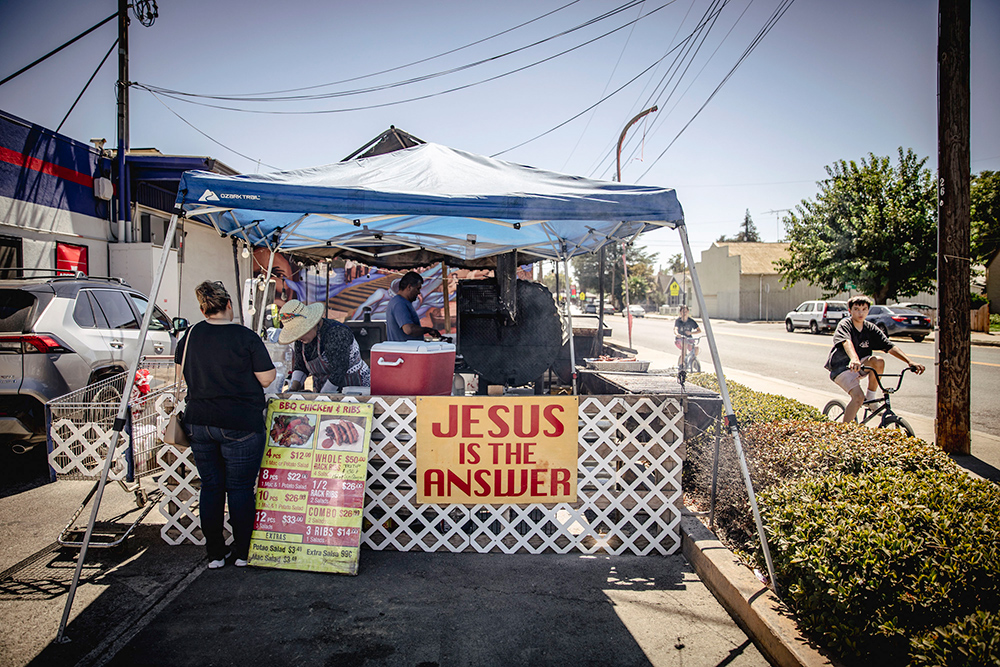
To vaccinate farmworkers, we knew we had to take the vaccines to them. And so, again, we went out into the fields, sometimes in rain and mud. Of course, we encountered some vaccine hesitancy, even skepticism. Much has been made of the threat of disinformation in our country, particularly to public health efforts and democracy itself. Liberals in particular are keen to blame social media, Fox News, even the Russians for this reality. But the core issue is that the crisis of disinformation is a symptom of a failure of our society’s institutions to establish trust. We found that the best way to convince someone that the vaccine is safe is for them to know someone who is vaccinated — just as to inspire trust in government is to prove to them that government can work for them. So, as we think about how to rebuild trust in our society, my opinion is we need public institutions that have a real presence, and make a real positive impact, in the lives of everyone in our country.
Yolo County should be proud of the accomplishments of the farmworker vaccination campaign. The pandemic, for all its tragedy, had been a remarkable moment when the public sector felt empowered and motivated to reimagine how things could be done. During the pandemic, we all knew what we were fighting against. Now is the time to decide what we are fighting for.
After World War II, Britain chose to radically transform its previously stratified class-based society. During the Blitz, the rich fled to their country homes, while high-density working class neighborhoods were flattened. After the victory over Germany, working people did not want to just go back to the way things were before. A Labor Party landslide swept away Winston Churchill. Under Prime Minister Clement Attlee, Britain would build the social safety net that Britons still rely on — most notably the National Health Service. I believe that America is in a similar Clement Attlee moment today. We can create a pathway to citizenship for all the undocumented essential workers in Yolo County and across America who kept our country fed during the pandemic. We can make all health care as free and accessible as the COVID-19 vaccine. We can build up our public institutions to confront any number of challenges. We just have to decide whether our loyalty to America means every person for themselves — or whether it means we are loyal to one another.
My experience in local government during the COVID-19 pandemic has convinced me that we can choose the latter. In the span of one remarkable year, the local government of a small rural county in Northern California invented a social safety net out of scratch and distributed free health care services to all — regardless of insurance coverage or immigration status — all while prioritizing the most vulnerable. There I saw glimmers of the country that believes in government and its ability to do big things. There I saw my government and my people brought together at last. Yolo County had figured out how to bring its most essential and invisible workers into the fold of our democracy. You have to ask: Why don’t we do this all the time?
Antonio De Loera-Brust is director of communications for the United Farm Workers. He previously was special assistant to U.S. Secretary of State Antony Blinken. Raised in Yolo Co., California, he was a public policy fellow with the Congressional Hispanic Caucus Institute in 2018–19.
We asked photographer Bryan Meltz to accompany Antonio De Loera-Brust on his visit to Yolo Co., and to share her reflections on what she saw there. —The Editor
Seeds and Desert
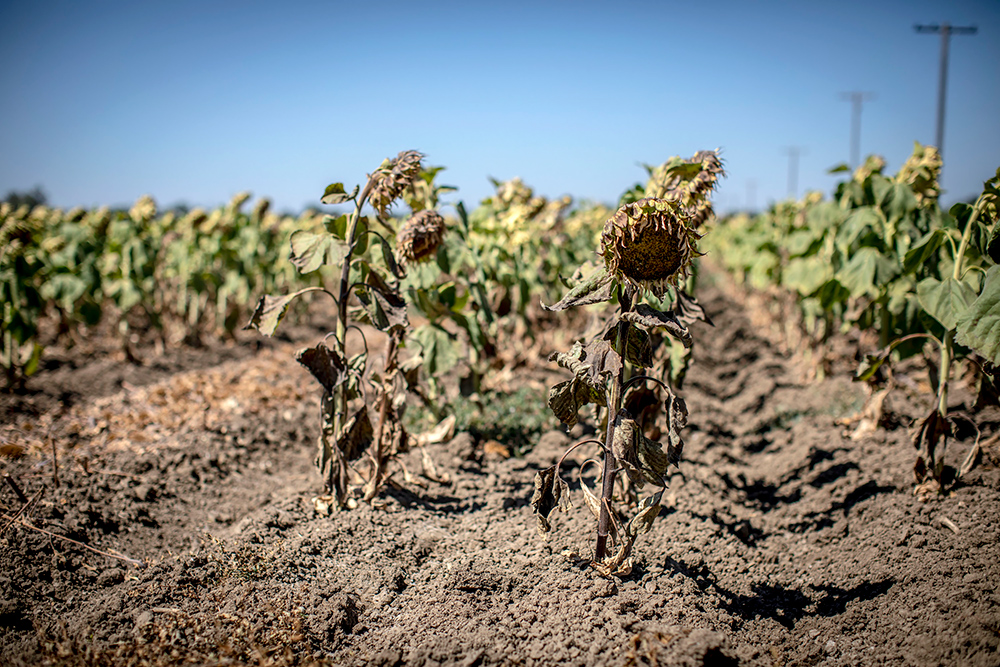
The fields outside Davis are full of rotting tomatoes and dying sunflowers. Tomato harvest is winding down, and what is left on the ground remains there to rot until the soil is tilled for next year’s crops. In the afternoon, a few trucks hauling the remaining harvest travel county roads and highways from the fields to the tomato canning facility in Woodland. There, employees, mainly seasonal workers, work rotating shifts 24/7. The sunflowers, I was told, are not dead but about to be harvested. They are left to dry on the stalk, and not until the backs of the blooms are brown is it time to harvest the seeds. Ninety-five percent of the county’s sunflower harvest is sold as seeds to be planted around the world and eventually produce sunflower oil. Yet, many in these towns remain isolated from the food they help make. Knights Landing, for example, has no grocery store. One Mexican restaurant and three gas-station-style markets sell everything from food to clothes to household items. While most citizens work in the agricultural industry, the town itself is a food desert. Antonio’s experience speaks to the disconnection between the farmworkers and the local government. In late summer, the disconnection that spoke loudest to me was between the food available in these rural towns and the people who harvest it. —Bryan Meltz
Seeds and Growth
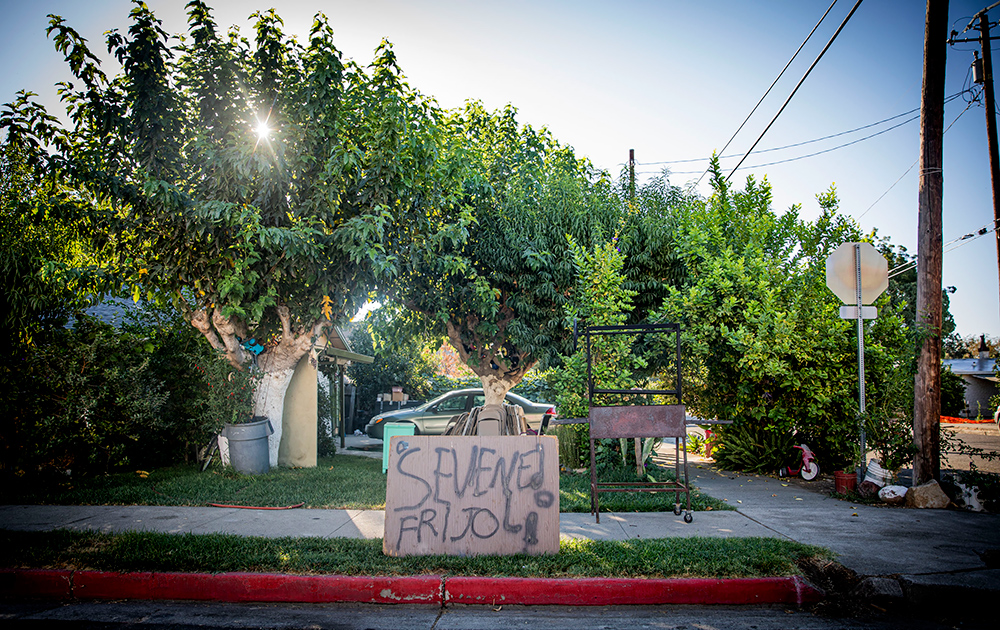
The Madison Migrant Center provides seasonal housing for low-income migrant farmworker families in Yolo County. As Antonio led me through the complex that houses roughly 75 families from April to October, I immediately sensed his connection to the folks who live there and how familiar he is to this community. He recognized several college-age kids; one of those kids was Antonio Gutierrez, age 19. Gutierrez welcomed us into his home, apologized for the state of the kitchen, and asked us to keep our voices down as his parents were asleep in the other room. They work the graveyard shift at the local processing plant in town and had raised Gutierrez partly in Madison, returning seasonally every year since he was a child. The connection between the two was palpable — they’ve known each other since Gutierrez was 6. He was in Antonio’s after-school program at the housing center. Thirteen years later, Gutierrez was about to start his freshman year at Sacramento State University. Gutierrez was nervous about starting college and eager to ask Antonio about all the things he might need, what classes he should take and what to expect. The two sat at the table for more than an hour, and Antonio answered and asked questions and promised to visit Gutierrez in the dorms, until it was time for us to leave and visit the family next door. —Bryan Meltz
Bryan Meltz is a documentary and portrait photographer whose work has appeared in Rolling Stone, Outside Magazine, The New York Times and elsewhere. Follow her @bryan.meltz.
